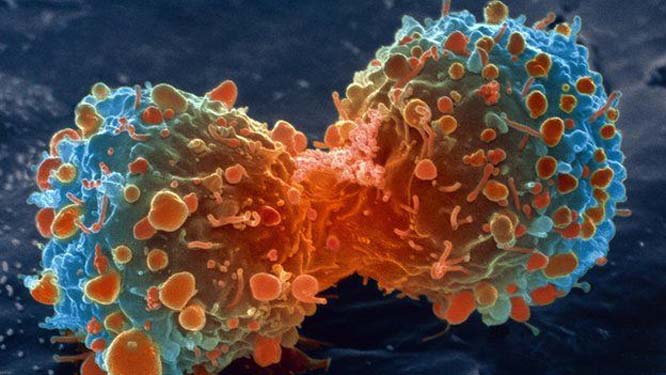
Recent news that random bad luck plays a big role in cancer has been misinterpreted as bad news, when it's actually very useful in helping humanity understand what cancer is and what can be done to prevent it.
New experiments attempt to quantify findings from 2015 and 2017 that showed random "bad luck" was a major factor in the development of cancer - along with inherited genetic predispositions and environmental carcinogens.
An independent team this month showed that normal tissue is roiling with clusters of mutated cells, some of which have genetic errors common in cancer. This fits well with the current understanding that cancer starts when cells acquire a combination of genetic mutations that allows them to grow out of control.
The reaction to the "bad luck" claim has been more moralistic than scientific. StatNews reported that the results might imply "that preventive efforts from smoking cessation to environmental cleanups were largely pointless." A news story in Science Magazine said: "Many scientists took issue with the paper … because they felt it overemphasized the randomness of cancer and downplayed the value of trying to prevent it."
That defeatist view is a bit like not wearing a seat belt because driving is never 100 percent safe. There's a more constructive way of thinking about randomness: not as a reason to give up on minimizing risk, but as a reason for vigilance and research.
Knowing the role of randomness, maybe more of us would have a doctor look at that little lump, or spot between our toes that looks weird even though it's on skin that never sees the sun. I don't smoke, but because I have learned that 15 percent of lung cancer cases occur in people who never smoked, I am more likely to take seriously a persistent chest pain or cough, which really could be lung cancer. Recognizing the random factor might save some lives.
In the latest research, published this month in the journal Science, it's hard to tell whether the mutations in healthy tissue were caused in part by environmental factors or are primarily random copying errors, but these results do suggest that the mere act of getting older is a major risk factor. As one of the studies' authors put it back in 2015: The longer the trip, the greater the odds of an accident, even if you wear your seat belt.
The findings offer both hope and caution for the promise of early detection. Proponents of mass screening were set back in recent years by scandals showing that screening programs for prostate and breast cancer have led many people to get harsh, life-changing treatments for tumors that were unlikely to spread.
The fact that cancer-associated mutations exist in normal tissue could complicate the quest to offer simple blood tests to detect other kinds of cancer. It's no longer obvious what to consider normal. Perhaps it really is normal to gradually progress toward cancer.
If so, there isn't much you can do about it. But there's a lot more that medical technology might do. Early intervention might help. Think of the success of colonoscopies, in which doctors can remove potentially dangerous polyps and nobody misses them. Same for the removal of pre-cancerous skin lesions.
In animals with unusually low cancer incidence, random mutations happen, but evolution has found ways to fix them. Elephants carry extra copies of a gene called p53, for example, which codes for a system of DNA repair, so elephants have to get very unlucky to get cancer. Someday scientists may harness this superpower for us.
The random misfortune of cancer will be vulnerable to medical advances like that, which means humans can make their own luck.
Every weekday JewishWorldReview.com publishes what many in the media and Washington consider "must-reading". Sign up for the daily JWR update. It's free. Just click here.
(COMMENT, BELOW)
Faye Flam writes about science, mathematics and medicine. She has been a staff writer for Science magazine and a columnist for the Philadelphia Inquirer. She is author of "The Score: How the Quest for Sex has Shaped the Modern Man."
Previously:
• 04/03/19: It won't be an egg that kills you
• 03/18/19: Joke's on them: Bribing your way into Yale is a waste of money
• 11/14/18: Biased research fueled countless harmful diet fads
• 07/02/18: The recycling game is rigged against consumers
• 03/28/18: Stanford study casts doubt on calorie counting
• 11/20/17: Take that hypertension news with a grain of salt
• 10/09/16: Science says it's OK to eat that fatty cheesecake
• 06/06/16: Cell Phones and the Anatomy of a Cancer Scare
• 02/12/16: Too cautious about food? That can be dangerous


 Contact The Editor
Contact The Editor
 Articles By This Author
Articles By This Author